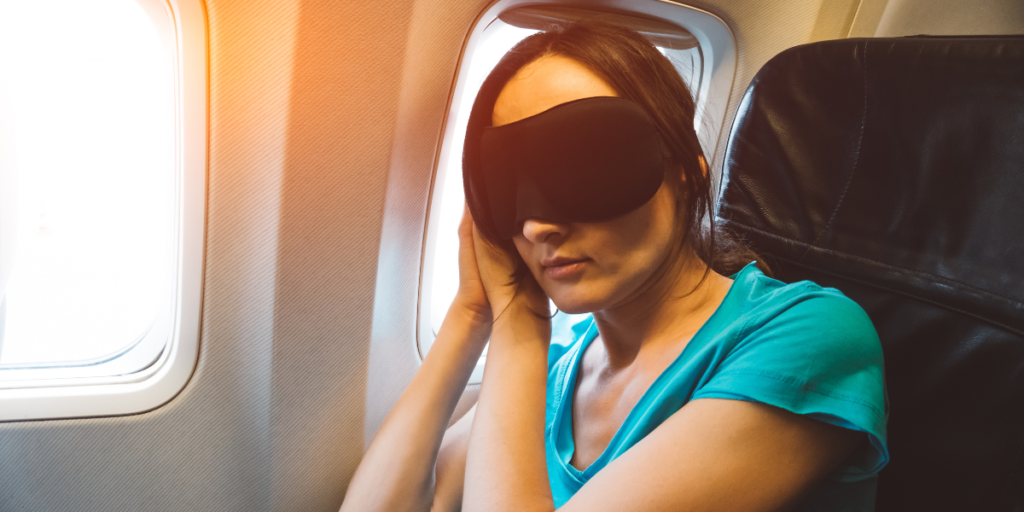
How to Deal With Jet Lag: A Complete Guide to Recovery and Prevention
Jet lag is a temporary sleep disorder that occurs when your body’s natural circadian rhythm is disrupted by crossing multiple time zones. Symptoms like fatigue, insomnia, irritability, nausea, and difficulty concentrating can make adjusting to a new time zone challenging. While jet lag resolves naturally within days, you can take proactive steps to alleviate its effects and recover faster.
Jet Lag and Its Impact
The severity of jet lag depends on several factors, including the number of time zones crossed, the direction of travel, and individual susceptibility. Eastward travel, which shortens the day, typically causes more severe symptoms than westward travel, where days feel longer. This is because the body struggles more to fall asleep earlier than to stay awake later.
Your internal clock, regulated by exposure to light and other cues, struggles to align with the new schedule, causing disruptions in sleep and energy levels. Additionally, changes in meal times, hydration, and physical activity can further affect how quickly you adapt.
Travelers leaving during peak hours at the airport, when security lines are longer and waiting times can add to the stress of travel, may find their symptoms worsened due to increased fatigue.
Practical Tips for Coping with Jet Lag
Adapting to a new time zone begins with preparation before you leave. Gradually adjust your bedtime to align with the destination’s time zone. For eastward travel, try going to bed one to two hours earlier each night for a few days before departure. For westward travel, delay your bedtime instead. This simple adjustment helps your body ease into the new schedule.
Once you arrive, it’s essential to adopt the local time as quickly as possible. Avoid the temptation to follow your old schedule for meals and sleep. This may be particularly difficult if your new time zone is significantly different, but staying disciplined in the first 24 hours can make the transition smoother.
When sleeping, create a comfortable and distraction-free environment. Use noise-canceling headphones, earplugs, or white noise machines to drown out ambient noise. Keep your sleeping area cool, dark, and free of interruptions. Familiar items, such as a favorite blanket or pillow, can also promote better rest.
Hydration, Nutrition, and Exercise
Dehydration is common during long flights and can exacerbate jet lag symptoms. Drink water regularly during your journey and avoid alcohol and excessive caffeine, both of which can disrupt sleep and contribute to dehydration. Bringing an empty water bottle to fill after security ensures you stay hydrated throughout the flight.
Nutrition also plays a role in managing jet lag. Stick to smaller, lighter meals during travel to avoid digestive discomfort. Some studies suggest eating in line with your destination’s meal schedule can help signal your body to adjust faster. Additionally, moderate exercise, such as stretching or walking, promotes blood circulation and can reduce fatigue.
If your schedule allows, get outside and expose yourself to natural light at strategic times. For eastward travel, avoid bright light during the early hours of your destination’s morning to prevent an early wake-up. Wear sunglasses if necessary. Conversely, for westward travel, seek evening sunlight to delay sleep and extend wakefulness.
Managing Specific Jet Lag Challenges

For travelers with tight schedules or young children, jet lag can feel particularly burdensome. Parents traveling with infants or toddlers should try to maintain consistent nap and feeding schedules, even during flights. Familiar toys, blankets, or bedtime routines can help little ones feel more secure in unfamiliar surroundings.
If you’re prone to waking up at odd hours, avoid turning on bright lights or using electronic devices, as this can reinforce the disruption. Instead, try calming activities like reading or listening to soft music. For longer trips, adjusting to the local rhythm will eventually help stabilize your sleep patterns.
Using Supplements and Sleep Aids
Melatonin supplements are a popular remedy for jet lag and may help your body transition more quickly to a new time zone. Melatonin is a hormone your body naturally produces to promote sleepiness, and taking it at the right time can mimic its normal release.
For example, if traveling east, melatonin can help you fall asleep earlier. If traveling west, it may help you stay asleep longer in the morning. Always consult a healthcare professional before using supplements to ensure they are safe and compatible with any medications you are taking.
Preventing Jet Lag for Important Events
If you’re traveling for a significant event, consider arriving a day or two earlier to allow your body time to adjust. This is especially important for business travelers, athletes, or those with critical obligations, as jet lag can impact cognitive performance and physical endurance. Adapting your sleep schedule before travel and planning rest periods strategically can reduce pre-event stress.
The Role of Light and Caffeine
Light exposure is one of the most effective ways to reset your internal clock. Natural sunlight is the best option, but if you’re unable to spend time outdoors, light therapy lamps can provide a similar effect. Use them in the morning to wake up your body or in the evening to stay alert.
Caffeine, found in coffee and tea, can temporarily combat daytime fatigue. However, it should be used sparingly and avoided in the afternoon or evening to prevent interfering with sleep. A single dose of slow-release caffeine in the morning can help you stay alert without causing jitteriness.
Is Jet Lag Preventable?
While it’s impossible to completely avoid jet lag, its effects can be minimized with thoughtful planning. Adjusting your schedule before departure, staying hydrated, and being mindful of your exposure to light and meals can significantly reduce symptoms. Supplements and sleep aids may provide additional support for travelers with severe disruptions.
FAQs
How Long Does Jet Lag Last?
The general rule is that it takes about one day to adjust for each time zone crossed. For example, if you travel across five time zones, you may experience symptoms for up to five days. Factors such as age, baseline health, and sleep habits can influence recovery time.
Can Jet Lag Make You Feel Sick?
Yes, jet lag can cause nausea, headaches, and irritability due to the disruption of natural bodily functions. Staying hydrated, eating light, and sleeping at appropriate times can help alleviate these symptoms.
Is a Gym Good for Jet Lag?
Yes, moderate exercise can help you adjust faster. A short gym session or stretching routine stimulates blood flow and reduces fatigue. Avoid overexertion, as this can interfere with recovery.
The Takeaway
Jet lag is a common yet manageable condition that requires patience and preparation. By following these strategies and allowing your body time to adjust, you can enjoy a smoother transition to your destination. Whether you’re traveling for leisure, work, or an important event, taking care of your body and mind ensures you get the most out of your journey.

Start Your Booking Today!
Experience the luxury and convenience of LAX black car service